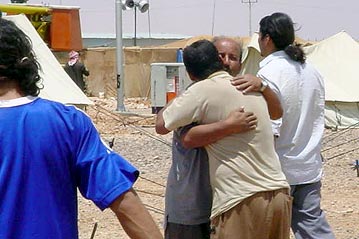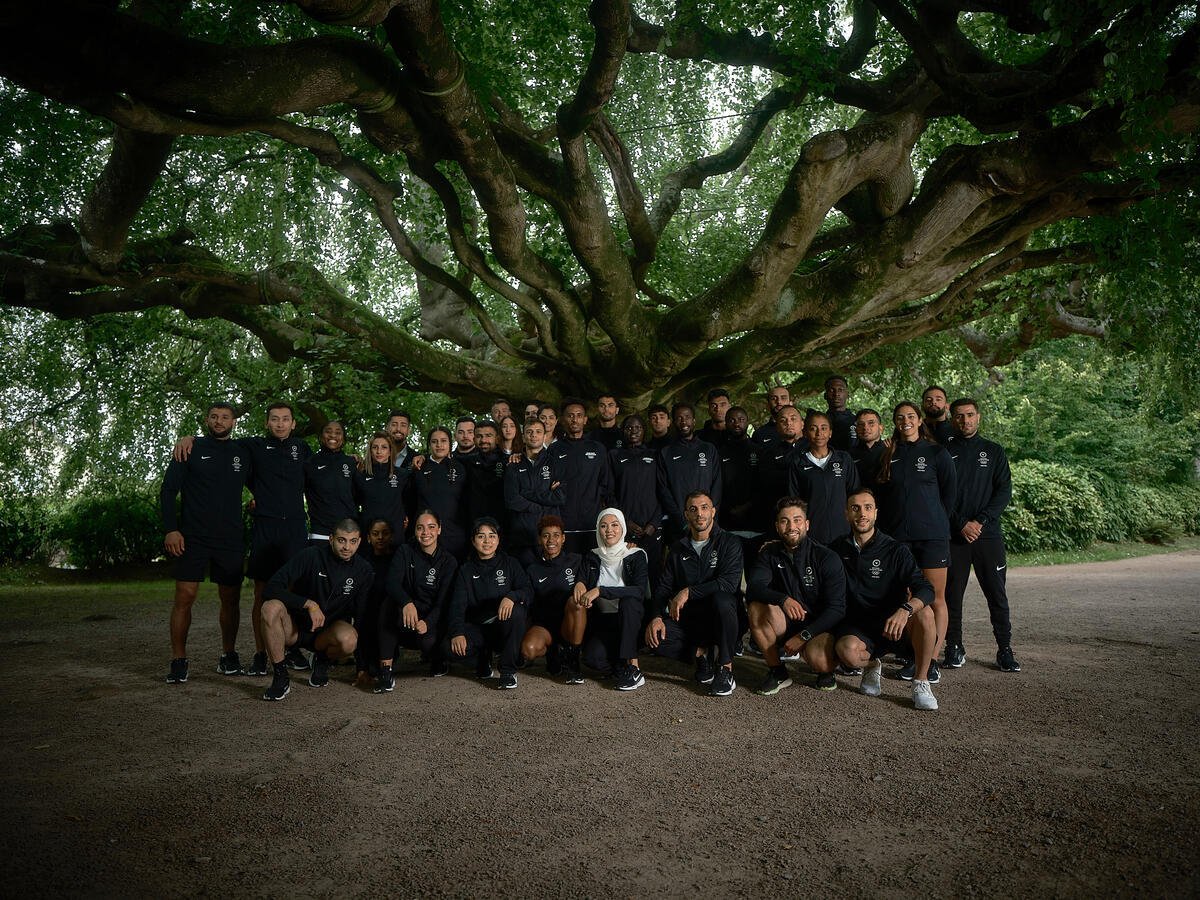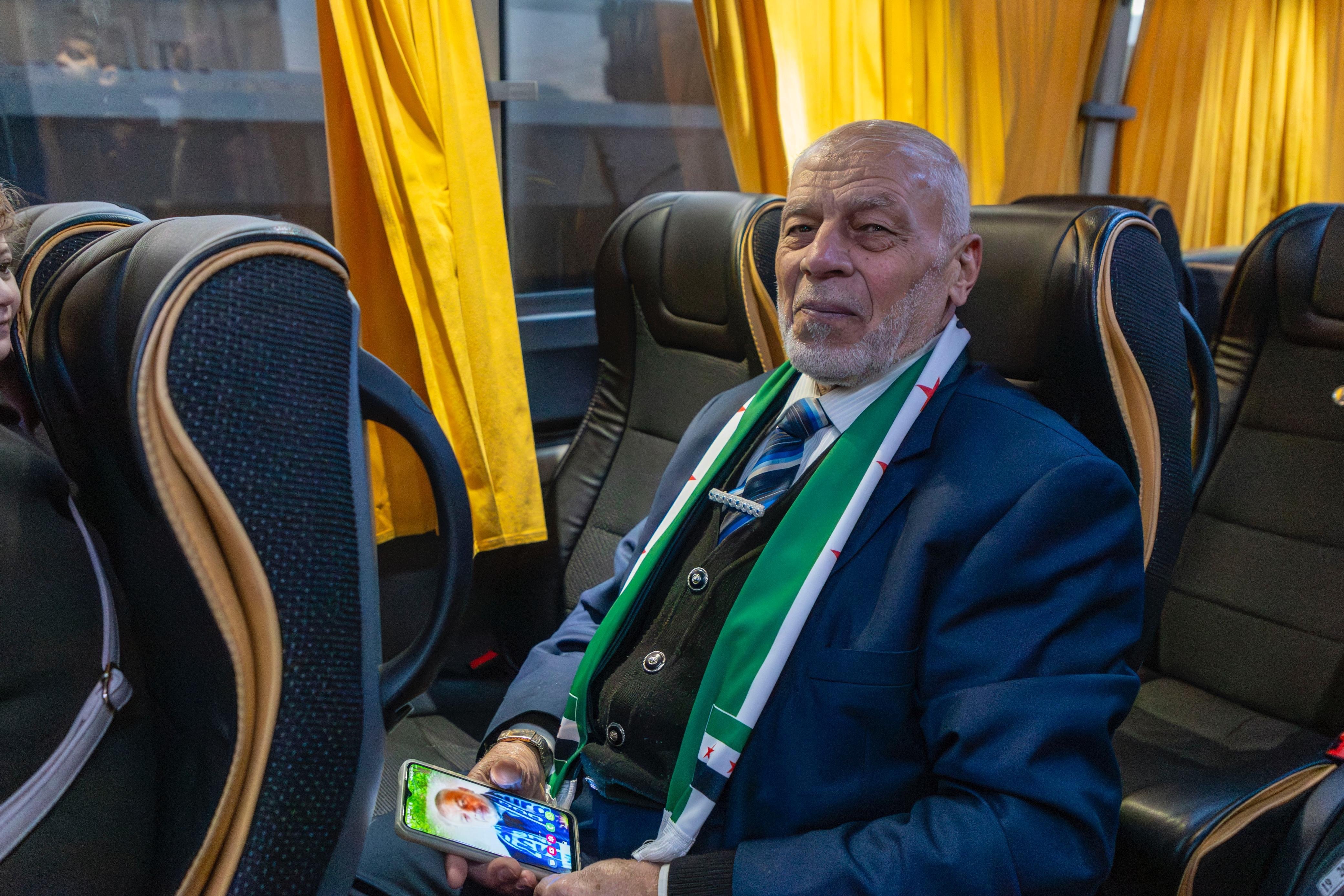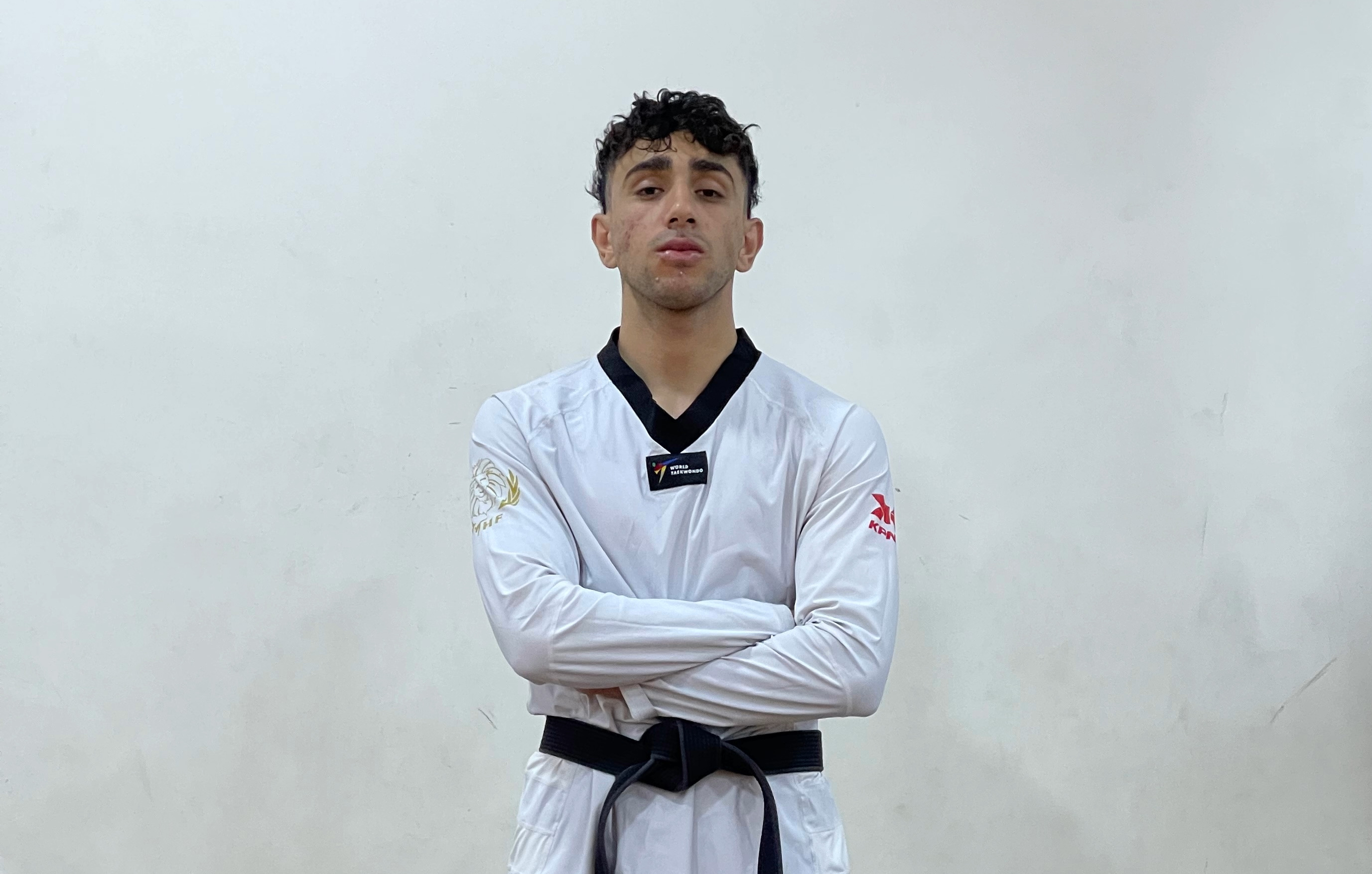Reuniting refugee families at Ruweished camp
Reuniting refugee families at Ruweished camp

RUWEISHED, Jordan, June 1 (UNHCR) - For two years, Abu Hanan languished in the no man's land between Jordan and Iraq, unable to meet his sons even though they were just a few kilometres away. But thanks to a recent decision by the Jordanian government, the family has finally been reunited in a desert camp just inside Jordan.
The family had been among many Palestinians living in Iraq when the war started in March 2003. They fled towards neighbouring Jordan, fearing insecurity during the conflict, and discrimination after the fall of Saddam Hussein's government in Baghdad. Some of them were allowed to enter Jordan, but others who arrived later were stuck in the no man's land between the two countries.
Abu Hanan's sons, Bahaa and Safaa, arrived in April 2003 and were admitted into Ruweished camp some 60 km inside Jordan. Abu Hanan, his wife and two daughters followed a month later, but were unable to enter Jordan because they said the border was closed. Unable to proceed, but unwilling to return to the insecurity in Iraq, they chose to stay in Al Karama, an unofficial camp in no man's land that was under no state's jurisdiction, hard to access and potentially unsafe.
"It is difficult and tough to be divided and separated for over two years from your sons, knowing they are only tens of kilometres away," said Abu Hanan. Fortunately for him, that separation ended on Sunday (May 29) when the Jordanian Hashemite Charity Organisation and the UN refugee agency transferred all the 743 people from Al Karama camp to Ruweished camp in Jordan.
It was an emotional scene as Abu Hanan's family was reunited on Sunday at Ruweished camp. "I am excited and happy to know that I am finally being reunited with my sons," said Abu Hanan.
His son, Bahaa, added, "I can't express the joy of seeing my family again. I can only be grateful that it finally happened."
Nearby, another Palestinian family was deep in embrace. Two years ago, Abu Marwan left his wife and son in Ruweished camp and went to the Iraqi border to pick up some money from his relatives in Iraq. When he headed back to Jordan, he said he found the border closed and had to make a life for himself in no man's land.
"I could not believe the news when UNHCR told me I was finally going to be moved to Ruweished camp," said Abu Marwan. "I refused to accept the reality until the last minute. I only believed it when I hugged and smelled them."
Reunion was equally sweet for Oum Quadis, whose eldest son had been deported from Ruweished camp to no man's land in July last year.
"Being separated from a son is a tragedy. I always lived surrounded by my children," she said. "When I finally saw my son, it was as if a part of my body that had been taken away was finally back in place."
Her husband Abu Quadis added that, despite the months of uncertainty, "I decided to trust UNHCR to solve my problem and get my son back. We fled Iraq and sought the protection of UNHCR and thus put our complete faith in the organisation."
Sunday's arrivals - including 643 Iranian Kurds, 47 Palestinians, 28 Iraqis and 25 people of mixed nationalities - bring the total population at Ruweished camp to 870.
UNHCR has had limited success in finding longer-term solutions for people stuck on the Iraq-Jordan border. In 2003, the Jordanian government accepted 384 Palestinian men and children with Jordanian spouses and mothers. Close to 400 others have been resettled to Sweden and Ireland.
The UN refugee agency is doubling its efforts to persuade states in the region and beyond to provide solutions for refugees remaining in Ruweished and no man's land.
By Karmen Sakhr in Ruweished camp, Jordan








